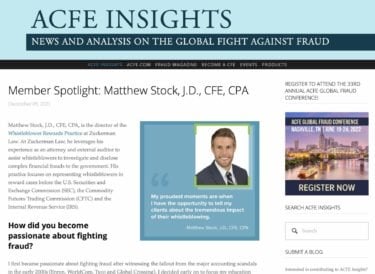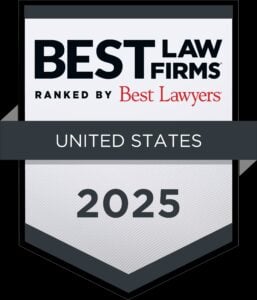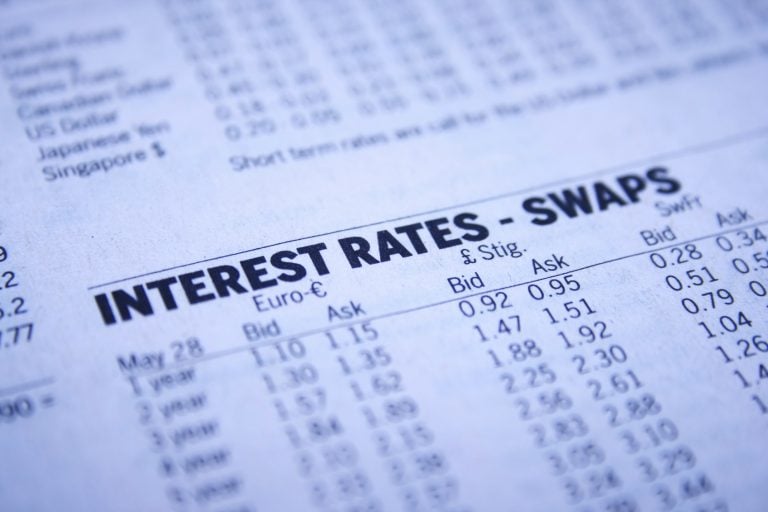
CFTC Whistleblower Reward Lawyers
The CFTC Whistleblower Reward Program provides whistleblowers with a strong monetary incentive, as well as anti-retaliation protections, for reporting wrongdoing to the CFTC. This includes violations or fraud in connection with:
- Commodity futures;
- Commodity options;
- Swap trading markets;
- Derivatives; and
-
Foreign corrupt practices.
On October 21, 2021, the CFTC awarded a whistleblower $200 million for providing information that led the CFTC to evidence of wrongdoing concerning the manipulation of financial benchmarks used by global banks. Approximately 65% of whistleblower cases filed at the CFTC involve charges of commodities fraud, market manipulation schemes, and spoofing. Whistleblower tips to CFTC have helped drive record-level enforcement activity.
Since 2014, the CFTC has issued more than $400 million in awards to whistleblowers. The largest CFTC whistleblower awards to date are $200 million, $45 million, $30 million, and $10 million. Whistleblower disclosures have enabled the CFTC to bring successful enforcement actions against wrongdoers with orders for more than $3 billion in monetary relief. See our recent post How to Report Swaps Manipulation or Swaps Reporting Violations and Qualify for a CFTC Whistleblower Award.
Call our CFTC whistleblower lawyers today at 202-930-5901 or contact us here to find out if you are eligible for a CFTC whistleblower award. A delay in reporting commodities fraud can potentially disqualify a whistleblower from recovering an award or can lower a whistleblower award, so call us today for a free consultation. We represent CFTC whistleblowers concerning a wide variety of market manipulation schemes.






Our experienced CFTC whistleblower lawyers are frequently quoted in the media about
whistleblower reward programs. Recently, the Wall Street Journal quoted Jason Zuckerman in an article titled Senate Passes Bill to Fund CFTC Whistleblower Program, and quoted Matthew Stock, Director of our Whistleblower Rewards Practice, in an article titled CFTC Whistleblower Tips and Awards Fall After Record 2018.
Recently the Association of Certified Fraud Examiners published a profile of Matt Stock’s success working with whistleblowers to fight fraud:
CFTC Whistleblower Reward Program
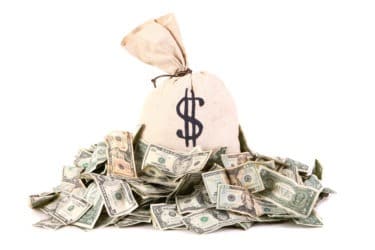
Original information “leads to” a successful enforcement action if either:
- The original information caused the staff to open an investigation, reopen an investigation, or inquire into different conduct as part of a current investigation, and the Commission brought a successful action based in whole or in part on conduct that was the subject of the original information; or
- The conduct was already under examination or investigation, and the original information significantly contributed to the success of the action.
In determining a reward percentage, the CFTC considers the particular facts and circumstances of each case. For example, positive factors may include the significance of the information, the level of assistance provided by the whistleblower and the whistleblower’s attorney, and the law enforcement interests at stake.
Awards are paid from the CFTC Customer Protection Fund, which is financed through monetary collected by the CFTC in any covered judicial or administrative action that is not otherwise distributed, or ordered to be distributed, to victims of a violation of the CEA underlying such action.
Anonymous Whistleblowing to the CFTC

The confidentiality protections of the CEA require the CFTC not to disclose information that “could reasonably be expected to reveal the identity of the whistleblower.” According to a recent report of the CFTC Whistleblower Office, the Office takes steps to protect whistleblower confidentiality. For example, in a recent fiscal year the Office considered 267 requests to produce documents from the investigation and litigation files of the Enforcement Division and found 16 requests to implicate whistleblower-identifying information. The Office worked with the Enforcement Division to remove whistleblower-identifying information or otherwise take steps to preserve whistleblower confidentiality.
CFTC Whistleblower Awards
The table below identifies some of the largest CFTC whistleblowers awards:
| Whistleblower Award | Date | Basis for Whistleblower Award |
|---|---|---|
| $200 million | October 21, 2021 | October 21, 2021, the CFTC "announced an award of nearly $200 million to a whistleblower whose specific, credible, and timely original information significantly contributed to an already open investigation and led to a successful enforcement action, as well as to the success of two related actions, by a U.S. federal regulator and a foreign regulator." For more information about the award, see our article here. |
| $45 million | August 2, 2018 | On August 2, 2018, the CFTC announced a $45 million award to multiple whistleblowers. Reports indicate the award was related to ISDAFIX manipulation enforcement actions. |
| $30 million | July 12, 2018 | On July 12, 2018, the CFTC announced its largest-ever whistleblower award given to an individual. The whistleblower exposed that JP Morgan did not properly disclose conflicts of interests to clients. Find the order here. |
| $10 million | March 28, 2016 | On April 4, 2016, the CFTC announced a $10 million award given to an individual. The whistleblower provided “valuable information” regarding violations of the Commodity Exchange Act. Find the order here. |
| $7 million | September 27, 2019 | On September 27, 2019, the CFTC issued a $7 million award to a whistleblower. CFTC Director of Enforcement James McDonald stated in the Press Release: “Forty percent of our investigations now involve whistleblowers. We expect that number to increase as the CFTC continues to expand its whistleblower program.” Find the order here. |
| $6 million | June 9, 2020 | On June 9, 2020, the CFTC issued a $6 million award to a whistleblower who voluntarily provided original information that led the CFTC to bring a successful enforcement action. According to the Press Release announcing the award, the CFTC opened its investigation upon receiving the whistleblower’s information, which was specific, credible and timely. |
| $2.5 million | June 24, 2019 | On July 24, 2019, the CFTC issued a $2.5 million CFTC whistleblower award to an individual. The award was reduced because of the whistleblower’s delay in reporting. Director McDonald said the delay was “unreasonable” and the whistleblower could have received a larger award had this person not waited. Find the order here. |
| $2 million | July 1, 2019 | On July 1, 2019, the CFTC issued a $2 million CFTC whistleblower award to two whistleblowers. The whistleblowers provided multiple interviews and documents that were “highly informative” and provided the agency “with significant information” that prompted the CFTC to open an investigation. The whistleblowers also reported the violations to another organization that conducted a separate investigation and shared its findings with the CFTC. Find the order here. |
| $2 million | March 4, 2019 | On March 4, 2019, the CFTC announced an award of over $2 million to a whistleblower. The whistleblower conducted an "independent analysis" of market data, which aided greatly in the CFTC’s investigation. The whistleblower was not an insider. The order is here. |
| $1.5 million | May 6, 2019 | On May 6, 2019, the CFTC announced a $1.5 million award to a whistleblower who tried to report it internally first. The CFTC granted the reward to the whistleblower for both a CFTC action and a related action brought by another federal regulator. Find the order here. |
| $290,000 | September 29, 2015 | On September 29, 2015, the CFTC announced an award of $290,000 to a whistleblower. Two applicants applied for the award, but the CFTC only awarded one of the whistleblowers because the “the information provided by the second applicant did not lead to a successful enforcement . . . action.” |
| $240,000 | May 20, 2014 | On May 20, 2014, the CFTC announced its first-ever whistleblower award of $240,000. The then-acting director of the CFTC reported that the whistleblower provided “specific, timely and credible information” that led to a successful investigation. |
Protections Against Whistleblower Retaliation
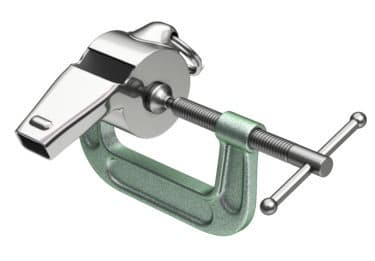
A whistleblower is entitled to this protection even if they do not receive a reward. The anti-retaliation provision applies to any whistleblower who possesses “a reasonable belief that the information the whistleblower is providing relates to a possible violation of the Commodity Exchange Act (CEA), or the rules or regulations thereunder, that has occurred, is ongoing, or is about to occur.”
The CFTC can take enforcement action against an employer that “retaliates against a whistleblower by discharge, demotion, suspension, direct or indirect threats or harassment, or any other manner of discrimination” because the whistleblower provided “information to the Commission after reporting the information through internal whistleblower, legal or compliance procedures.” 17 C.F.R. 165.20(b).
If you have suffered whistleblower retaliation, call the whistleblower retaliation lawyers at our firm at 202-262-8959.
CFTC Prohibits “Gag Clauses” in Confidentiality and Employment Agreements

No person may take any action to impede an individual from communicating directly with the Commission’s staff about a possible violation of the Commodity Exchange Act, including by enforcing, or threatening to enforce, a confidentiality agreement or predispute arbitration agreement with respect to such communications.
This prohibition is critical to the success of any whistleblower program because companies often use overly broad confidentiality agreements to silence and punish whistleblowers.
Experienced CFTC Whistleblower Lawyers
The whistleblower lawyers at Zuckerman Law have substantial experience representing corporate whistleblowers in whistleblower protection and whistleblower rewards cases.
Our team of attorneys includes a licensed Certified Public Accountant and Certified Fraud Examiner whose experience working at a large audit firm enhances the firm’s to investigate complex fraud schemes and prepare effective submissions to the CFTC. For a free, confidential consultation, click here or call us at 202-262-8959.
Violations of the CEA that Qualify for a CFTC Whistleblower Award
The largest CFTC whistleblower awards to date are $200 million, $45 million, and $30 million. The main types of violations that may qualify for a CFTC whistleblower award include:
Spoofing

Spoofing affects prices because the artificial increase in activity on either the buy or sell side of an asset creates the perception that there is a shift in the number of investors wanting to buy or sell. Spoofers place false bids or offers with the intent to cancel before executing so that they can then follow-through on genuine orders at a more favorable price. Often, spoofers use automated trading and algorithms to achieve their goals. According to a CFTC alert on spoofing related to CEA violations, the CFTC is concerned with conduct such as:
- manual and automated trading schemes that place and quickly cancel bids and offers in futures contracts in order to benefit other orders and/or positions;
- orders being quickly placed and canceled at or near the best bid or offer, especially if opposite-side orders are filled;
- multiple orders of the same size repeatedly and simultaneously being placed and canceled; and
- any scheme designed to cause prices to artificially move.
Examples of CFTC spoofing enforcement actions include:
- In November 2019, the CFTC imposed $67.4 million in sanctions against Tower Research Capital LLC, a proprietary trading firm, arising from a manipulative and deceptive scheme. On thousands of occasions, three former Tower traders, placed orders to buy or sell futures contracts with the intent to cancel those orders prior to execution. The traders often used an order splitter to enter several smaller, randomly-sized orders in an attempt to obscure their scheme from other market participants. According to a CFTC press release, “[t]he traders engaged in this scheme to induce other market participants to trade against their genuine orders—by intentionally sending a false signal to the market that they wanted to buy or sell the number of contracts specified in the spoof orders and creating a false impression of supply or demand—so that the genuine orders would fill sooner, at better prices, or in larger quantities than they otherwise would.”
- In August 2021, a federal jury convicted Edward Bases and John Pacilio, two former Merrill Lynch traders, for engaging in a multi-year fraud scheme to manipulate the precious metals market. According to a press release announcing the action, the two traders fraudulently pushed market prices up or down by routinely placing large “spoof” orders in the precious metals futures markets that they did not intend to fill. After manipulating the market, Bases and Pacilio executed trades at favorable prices for their own gain, and to the detriment of other traders. The DOJ’s Indictment detailed how Bases and Pacilio discussed their intent to “push” the market through spoofing in electronic chat conversations.
- In September 2020, JPMorgan Chase & Co. agreed to pay disgorgement of $920 million in parallel actions brought by the CFTC, DOJ, and the SEC engaging in manipulative trading of U.S. Treasury securities. According to the SEC’s order, certain traders on J.P. Morgan Securities’ Treasuries trading desk placed genuine orders to buy or sell a particular Treasury security, while nearly simultaneously placing spoofing orders, which the traders did not intend to execute, for the same series of Treasury security on the opposite side of the market. The spoofing orders were intended to create a false appearance of buy or sell interest, which would induce other market participants to trade against the genuine orders at prices that were more favorable to J.P. Morgan Securities than J.P. Morgan Securities otherwise would have been able to obtain.
Corrupt Practices

Companies and individuals engaging in foreign corrupt practices should recognize that this sort of misconduct might constitute fraud, manipulation, false reporting, or a number of other types of violations under the CEA, and thus be subject to enforcement actions brought by the CFTC. Bribes might be employed, for example, to secure business in connection with regulated activities like trading, advising, or dealing in swaps or derivatives. Corrupt practices might be used to manipulate benchmarks that serve as the basis for related derivatives contracts. Prices that are the product of corruption might be falsely reported to benchmarks. Or corrupt practices in any number of forms might alter the prices in commodity markets that drive U.S. derivatives prices. We currently have open investigations involving similar conduct.
In December 2020, the CFTC exercised that authority by imposing a $95 million civil penalty to settle charges against Vitol Inc, for manipulative and deceptive conduct involving foreign corruption and physical and derivatives trading in the U.S. and global oil market. The CFTC found that “Vitol committed fraud by making corrupt payments (e.g., bribes and kickbacks) to employees and agents of certain state-owned entities (SOEs) in Brazil, Ecuador, and Mexico to obtain preferential treatment and access to trades with the SOEs to the detriment of the SOEs and other market participants.” The corrupt payments were concealed by funneling them through offshore bank accounts or to shell entities, and at times, issuing deceptive invoices for purported “market intelligence” or “sell support.” The objective of these illicit payments was to secure unlawful competitive advantages in trading physical oil products and derivatives.
Trading on Material Nonpublic Information

The fraud or manipulation must be in connection with any swap, or contract of sale of any commodity in interstate commerce, or contract for future delivery on or subject to the rules of any registered entity. Examples of prohibited trading include:
- trading on material nonpublic information (MNPI) that was obtained by fraud or deception;
- trading on market-moving information that the source had a duty to protect;
- brokers front running customer orders or taking the other side of any customer order without consent; and
- improperly disclosing MNPI or using MNPI provided by a counterparty without the counterparty’s consent.
An example of the CFTC enforcing its prohibition against the misappropriation of MNPI is a September 29, 2016 enforcement taken against Jon P. Ruggles for engaging in fraudulent, fictitious, and non-competitive trades in crude oil and heating oil futures and options and RBOB gasoline futures on the NYMEX. The CFTC’s order settling the charges requires Ruggles to disgorge ill-gotten gains totaling $3,501,306, imposes a civil monetary penalty of $1.75 million, and permanently bans him from trading and registering with the CFTC. Ruggles, who was responsible for developing his former employer’s fuel hedging strategies and for executing the employer’s trades in certain NYMEX products, misappropriated the employer’s trading information for his own benefit in personal accounts that he controlled.
Benchmark Rates Manipulation
In a benchmark-rate-manipulation scheme, individuals seek to increase or decrease impartial global reference rates for their own financial gain. This misconduct is typically associated with the U.S. Dollar International Swaps and Derivatives Association Fix (USD ISDAFIX), benchmark-swap rates, LIBOR, Euribor, and other foreign interest-rate benchmarks.
On May 25, 2016, the CFTC ordered Citibank to pay $250 million for attempted manipulation and false reporting of USD ISDAFIX benchmark-swap rates. According to a CFTC press release, Citibank traders “attempted to manipulate and made false reports concerning the USD ISDAFIX by skewing the Bank’s USD ISDAFIX submissions . . . in order to benefit the Bank’s trading positions at the expense of its derivatives counterparties.” The CFTC uncovered numerous instances of Citibank’s USD ISDAFIX misconduct through the bank’s exotic traders’ instant messages. In March 2008, one of Citibank’s exotics traders stated in separate instant messages to other market participants that “[I] moved the screen btw” and “[I] moved the screen to 183 on 2s10s…[One of Citibank’s swaps traders] is pretty good at it,” and “[I] push the 2s10s swap on the screen to 183.4, very proud of myself.”
How the CFTC Determines Whistleblower Awards
According to the CFTC’s Enforcement Manual, “[w]hen the CFTC obtains a judicial or administrative order that—by itself or together with judgments or orders in related CFTC enforcement actions or Related Actions brought by certain other entities—imposes monetary sanctions exceeding $1,000,000, then the order becomes a covered judicial or administrative action upon which the CFTC may pay out whistleblower awards. The WBO will then post a Notice of Covered Action, and whistleblowers may begin applying for awards.”
A recent CFTC order awarding $10 million to a CFTC whistleblower clarifies that the CFTC employs a flexible approach to weighing the positive and negative award criteria and no one factor is dispositive:
The analytical framework in the Rules provides general principles without mandating a particular result. The criteria for determining the amount of an award in Rule 165.9, 17 C.F.R. § 165.9, are not listed in any order of importance and are not assigned relative importance. Rule 165.9(b) provides a list of factors that may increase the award amount, and Rule 165.9(c) provides a list of factors that may decrease the award amount. However, the Rules do not specify how much any factor in Rule 165.9(b) or (c) should increase or decrease the award percentage. Not satisfying any one of the positive factors does not mean that the award percentage must be less than 30%. and the converse is true. Not having any one of the negative factors does not mean the award percentage must be greater than 10%. These principles serve to prevent a vital whistleblower from being penalized for not satisfying the positive factors. For example, a whistleblower who provides the Commission with significant information and substantial assistance such as testifying at trial and producing documents containing direct evidence of violations could receive 30% even if the whistleblower did not participate in any internal compliance systems. In contrast, in order to prevent a windfall, a whistleblower who provides some useful but partial information and limited assistance to the Commission may receive 10% even if none of the negative factors were present.
Key Rules Governing CFTC Whistleblower Award Eligibility
- A whistleblower may be eligible for an award by providing the Commission original information without being the original source of the information. [Rule 165.5(b)]
- A whistleblower retains eligibility for an award based on information provided by the whistleblower to certain specified persons or authorities, now to include foreign futures authorities, prior to the time that the whistleblower provided the information to the Commission. [Rule 165.2(i)(2); Rule 165.2(l)(2)]
- Where a whistleblower first provides information to certain specified persons or authorities before reporting to the Commission, the timeframe for a whistleblower to submit a Form TCR (Tip, Complaint or Referral) to the Commission has been extended from 120 days to 180 days. If a whistleblower submits a Form TCR within this 180-day period after reporting to the other person or authority, the Commission will consider the whistleblower to have provided information to the Commission as of the date of the whistleblower’s original disclosure to the other person or authority. [Rule 165.2(i)(3); Rule 165.2(l)(2)]
- The Commission may waive its procedural requirements based upon a showing of extraordinary circumstances. [Rule 165.5(c)]
Resources About CFTC Whistleblower Reward Program
CFTC Whistleblower Statute, 7 U.S.C. § 26
CFTC Whistleblower Rules, 17 C.F.R. pt. 165
Dodd-Frank Act Provision Creating CFTC Whistleblower Reward Program
§26. Commodity whistleblower incentives and protection
(a) Definitions
In this section:
(1) Covered judicial or administrative action
The term “covered judicial or administrative action” means any judicial or administrative action brought by the Commission under this chapter that results in monetary sanctions exceeding $1,000,000.
(2) Fund
The term “Fund” means the Commodity Futures Trading Commission Customer Protection Fund established under subsection (g).
(3) Monetary sanctions
The term “monetary sanctions”, when used with respect to any judicial or administrative action means—(A) any monies, including penalties, disgorgement, restitution, and interest ordered to be paid; and(B) any monies deposited into a disgorgement fund or other fund pursuant to section 7246(b) of title 15, as a result of such action or any settlement of such action.
(4) Original information
The term “original information” means information that—(A) is derived from the independent knowledge or analysis of a whistleblower;(B) is not known to the Commission from any other source, unless the whistleblower is the original source of the information; and(C) is not exclusively derived from an allegation made in a judicial or administrative hearing, in a governmental report, hearing, audit, or investigation, or from the news media, unless the whistleblower is a source of the information.
(5) Related action
The term “related action”, when used with respect to any judicial or administrative action brought by the Commission under this chapter, means any judicial or administrative action brought by an entity described in subclauses (I) through (VI) of subsection (h)(2)(C) that is based upon the original information provided by a whistleblower pursuant to subsection (a) that led to the successful enforcement of the Commission action.
(6) Successful resolution
The term “successful resolution”, when used with respect to any judicial or administrative action brought by the Commission under this chapter, includes any settlement of such action.
(7) Whistleblower
The term “whistleblower” means any individual, or 2 or more individuals acting jointly, who provides information relating to a violation of this chapter to the Commission, in a manner established by rule or regulation by the Commission.
(b) Awards
(1) In general
In any covered judicial or administrative action, or related action, the Commission, under regulations prescribed by the Commission and subject to subsection (c), shall pay an award or awards to 1 or more whistleblowers who voluntarily provided original information to the Commission that led to the successful enforcement of the covered judicial or administrative action, or related action, in an aggregate amount equal to—(A) not less than 10 percent, in total, of what has been collected of the monetary sanctions imposed in the action or related actions; and(B) not more than 30 percent, in total, of what has been collected of the monetary sanctions imposed in the action or related actions.
(2) Payment of awards
Any amount paid under paragraph (1) shall be paid from the Fund.
(c) Determination of amount of award; denial of award
(1) Determination of amount of award
(A) Discretion
The determination of the amount of an award made under subsection (b) shall be in the discretion of the Commission.
(B) Criteria
In determining the amount of an award made under subsection (b), the Commission—(i) shall take into consideration—(I) the significance of the information provided by the whistleblower to the success of the covered judicial or administrative action;(II) the degree of assistance provided by the whistleblower and any legal representative of the whistleblower in a covered judicial or administrative action;(III) the programmatic interest of the Commission in deterring violations of the 1 chapter (including regulations under the 1 chapter) by making awards to whistleblowers who provide information that leads to the successful enforcement of such laws; and(IV) such additional relevant factors as the Commission may establish by rule or regulation; and
(ii) shall not take into consideration the balance of the Fund.
(2) Denial of award
No award under subsection (b) shall be made—(A) to any whistleblower who is, or was at the time the whistleblower acquired the original information submitted to the Commission, a member, officer, or employee of—(i) a appropriate regulatory agency;(ii) the Department of Justice;(iii) a registered entity;(iv) a registered futures association;(v) a self-regulatory organization as defined in section 78c(a) of title 15; or(vi) a law enforcement organization;(B) to any whistleblower who is convicted of a criminal violation related to the judicial or administrative action for which the whistleblower otherwise could receive an award under this section;(C) to any whistleblower who submits information to the Commission that is based on the facts underlying the covered action submitted previously by another whistleblower;(D) to any whistleblower who fails to submit information to the Commission in such form as the Commission may, by rule or regulation, require.
(d) Representation
(1) Permitted representation
Any whistleblower who makes a claim for an award under subsection (b) may be represented by counsel.
(2) Required representation
(A) In general
Any whistleblower who anonymously makes a claim for an award under subsection (b) shall be represented by counsel if the whistleblower submits the information upon which the claim is based.
(B) Disclosure of identity
Prior to the payment of an award, a whistleblower shall disclose the identity of the whistleblower and provide such other information as the Commission may require, directly or through counsel for the whistleblower.
(e) No contract necessary
No contract with the Commission is necessary for any whistleblower to receive an award under subsection (b), unless otherwise required by the Commission, by rule or regulation.
(f) Appeals
(1) In general
Any determination made under this section, including whether, to whom, or in what amount to make awards, shall be in the discretion of the Commission.
(2) Appeals
Any determination described in paragraph (1) may be appealed to the appropriate court of appeals of the United States not more than 30 days after the determination is issued by the Commission.
(3) Review
The court shall review the determination made by the Commission in accordance with section 7064 2 of title 5.
(g) Commodity Futures Trading Commission Customer Protection Fund
(1) Establishment
There is established in the Treasury of the United States a revolving fund to be known as the “Commodity Futures Trading Commission Customer Protection Fund”.
(2) Use of Fund
The Fund shall be available to the Commission, without further appropriation or fiscal year limitation, for—(A) the payment of awards to whistleblowers as provided in subsection (a); and(B) the funding of customer education initiatives designed to help customers protect themselves against fraud or other violations of this chapter, or the rules and regulations thereunder.
(3) Deposits and credits
There shall be deposited into or credited to the Fund:
(A) Monetary sanctions
Any monetary sanctions collected by the Commission in any covered judicial or administrative action that is not otherwise distributed to victims of a violation of this chapter or the rules and regulations thereunder underlying such action, unless the balance of the Fund at the time the monetary judgment is collected exceeds $100,000,000.
(B) Additional amounts
If the amounts deposited into or credited to the Fund under subparagraph (A) are not sufficient to satisfy an award made under subsection (b), there shall be deposited into or credited to the Fund an amount equal to the unsatisfied portion of the award from any monetary sanction collected by the Commission in any judicial or administrative action brought by the Commission under this chapter that is based on information provided by a whistleblower.
(C) Investment income
All income from investments made under paragraph (4).
(4) Investments
(A) Amounts in Fund may be invested
The Commission may request the Secretary of the Treasury to invest the portion of the Fund that is not, in the Commission’s judgment, required to meet the current needs of the Fund.
(B) Eligible investments
Investments shall be made by the Secretary of the Treasury in obligations of the United States or obligations that are guaranteed as to principal and interest by the United States, with maturities suitable to the needs of the Fund as determined by the Commission.
(C) Interest and proceeds credited
The interest on, and the proceeds from the sale or redemption of, any obligations held in the Fund shall be credited to, and form a part of, the Fund.
(5) Reports to Congress
Not later than October 30 of each year, the Commission shall transmit to the Committee on Agriculture, Nutrition, and Forestry of the Senate, and the Committee on Agriculture of the House of Representatives a report on—(A) the Commission’s whistleblower award program under this section, including a description of the number of awards granted and the types of cases in which awards were granted during the preceding fiscal year;(B) customer education initiatives described in paragraph (2)(B) that were funded by the Fund during the preceding fiscal year;(C) the balance of the Fund at the beginning of the preceding fiscal year;(D) the amounts deposited into or credited to the Fund during the preceding fiscal year;(E) the amount of earnings on investments of amounts in the Fund during the preceding fiscal year;(F) the amount paid from the Fund during the preceding fiscal year to whistleblowers pursuant to subsection (b);(G) the amount paid from the Fund during the preceding fiscal year for customer education initiatives described in paragraph (2)(B);(H) the balance of the Fund at the end of the preceding fiscal year; and(I) a complete set of audited financial statements, including a balance sheet, income statement, and cash flow analysis.
(h) Protection of whistleblowers
(1) Prohibition against retaliation
(A) In general
No employer may discharge, demote, suspend, threaten, harass, directly or indirectly, or in any other manner discriminate against, a whistleblower in the terms and conditions of employment because of any lawful act done by the whistleblower—(i) in providing information to the Commission in accordance with subsection (b); or(ii) in assisting in any investigation or judicial or administrative action of the Commission based upon or related to such information.
(B) Enforcement
(i) Cause of action
An individual who alleges discharge or other discrimination in violation of subparagraph (A) may bring an action under this subsection in the appropriate district court of the United States for the relief provided in subparagraph (C), unless the individual who is alleging discharge or other discrimination in violation of subparagraph (A) is an employee of the Federal Government, in which case the individual shall only bring an action under section 1221 of title 5.
(ii) Subpoenas
A subpoena requiring the attendance of a witness at a trial or hearing conducted under this subsection may be served at any place in the United States.
(iii) Statute of limitations
An action under this subsection may not be brought more than 2 years after the date on which the violation reported in subparagraph (A) is committed.
(C) Relief
Relief for an individual prevailing in an action brought under subparagraph (B) shall include—(i) reinstatement with the same seniority status that the individual would have had, but for the discrimination;(ii) the amount of back pay otherwise owed to the individual, with interest; and(iii) compensation for any special damages sustained as a result of the discharge or discrimination, including litigation costs, expert witness fees, and reasonable attorney’s fees.
(2) Confidentiality
(A) In general
Except as provided in subparagraphs (B) and (C), the Commission, and any officer or employee of the Commission, shall not disclose any information, including information provided by a whistleblower to the Commission, which could reasonably be expected to reveal the identity of a whistleblower, except in accordance with the provisions of section 552a of title 5, unless and until required to be disclosed to a defendant or respondent in connection with a public proceeding instituted by the Commission or any entity described in subparagraph (C). For purposes of section 552 of title 5, this paragraph shall be considered a statute described in subsection (b)(3)(B) of such section 552.
(B) Effect
Nothing in this paragraph is intended to limit the ability of the Attorney General to present such evidence to a grand jury or to share such evidence with potential witnesses or defendants in the course of an ongoing criminal investigation.
(C) Availability to government agencies
(i) In general
Without the loss of its status as confidential in the hands of the Commission, all information referred to in subparagraph (A) may, in the discretion of the Commission, when determined by the Commission to be necessary or appropriate to accomplish the purposes of this chapter and protect customers and in accordance with clause (ii), be made available to—(I) the Department of Justice;(II) an appropriate department or agency of the Federal Government, acting within the scope of its jurisdiction;(III) a registered entity, registered futures association, or self-regulatory organization as defined in section 78c(a) of title 15;(IV) a State attorney general in connection with any criminal investigation;(V) an appropriate department or agency of any State, acting within the scope of its jurisdiction; and(VI) a foreign futures authority.
(ii) Maintenance of information
Each of the entities, agencies, or persons described in clause (i) shall maintain information described in that clause as confidential, in accordance with the requirements in subparagraph (A).
(iii) Study on impact of FOIA exemption on Commodity Futures Trading Commission
(I) Study
The Inspector General of the Commission shall conduct a study—(aa) on whether the exemption under section 552(b)(3) of title 5 (known as the Freedom of Information Act) established in paragraph (2)(A) aids whistleblowers in disclosing information to the Commission;(bb) on what impact the exemption has had on the public’s ability to access information about the Commission’s regulation of commodity futures and option markets; and(cc) to make any recommendations on whether the Commission should continue to use the exemption.
(II) Report
Not later than 30 months after July 21, 2010, the Inspector General shall—(aa) submit a report on the findings of the study required under this clause to the Committee on Banking, Housing, and Urban Affairs of the Senate and the Committee on Financial Services of the House of Representatives; and(bb) make the report available to the public through publication of a report on the website of the Commission.
(3) Rights retained
Nothing in this section shall be deemed to diminish the rights, privileges, or remedies of any whistleblower under any Federal or State law, or under any collective bargaining agreement.
(i) Rulemaking authority
The Commission shall have the authority to issue such rules and regulations as may be necessary or appropriate to implement the provisions of this section consistent with the purposes of this section.
(j) Implementing rules
The Commission shall issue final rules or regulations implementing the provisions of this section not later than 270 days after July 21, 2010.
(k) Original information
Information submitted to the Commission by a whistleblower in accordance with rules or regulations implementing this section shall not lose its status as original information solely because the whistleblower submitted such information prior to the effective date of such rules or regulations, provided such information was submitted after July 21, 2010.
(l) Awards
A whistleblower may receive an award pursuant to this section regardless of whether any violation of a provision of this chapter, or a rule or regulation thereunder, underlying the judicial or administrative action upon which the award is based occurred prior to July 21, 2010.
(m) Provision of false information
A whistleblower who knowingly and willfully makes any false, fictitious, or fraudulent statement or representation, or who makes or uses any false writing or document knowing the same to contain any false, fictitious, or fraudulent statement or entry, shall not be entitled to an award under this section and shall be subject to prosecution under section 1001 of title 18.
(n) Nonenforceability of certain provisions waiving rights and remedies or requiring arbitration of disputes
(1) Waiver of rights and remedies
The rights and remedies provided for in this section may not be waived by any agreement, policy form, or condition of employment including by a predispute arbitration agreement.
(2) Predispute arbitration agreements
No predispute arbitration agreement shall be valid or enforceable, if the agreement requires arbitration of a dispute arising under this section.(Sept. 21, 1922, ch. 369, §23, as added Pub. L. 111–203, title VII, §748, July 21, 2010, 124 Stat. 1739.)

